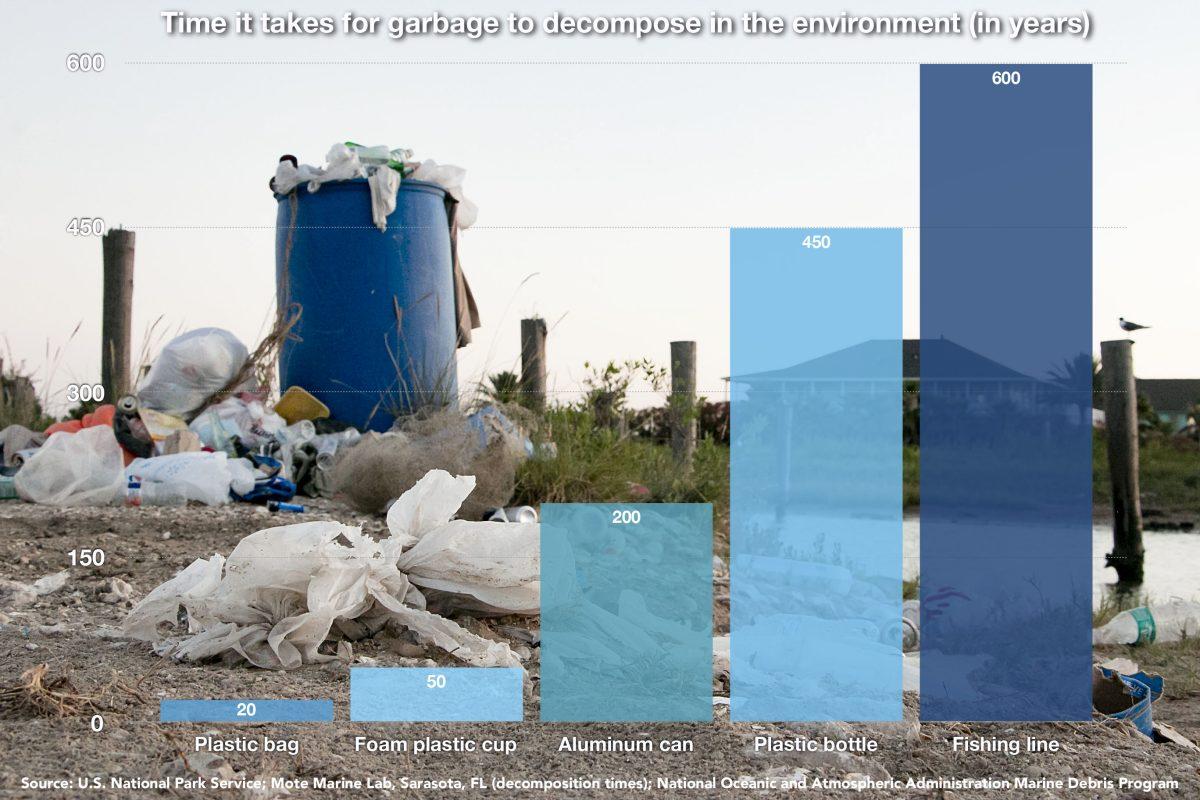The European Parliament recently approved a ban on 10 single-use plastics that most often end up in the ocean.
This comes as part of a global effort to reduce waste and materials which are harmful to the planet. Once in water, plastic never fully biodegrades. Instead, it turns into smaller pieces called microplastics which flow through the food chain. Microplastic eventually makes its way back to humans through meat, seafood or even table salt. These plastics take years to break down in the environment, but the ban is meant to reduce the overall volume that ends up in the world’s water beginning in 2021.
Trent Hodges, plastic pollution manager for Surfrider Foundation, said the awareness brought about by local efforts have brought national and international attention and action to this issue.
“Plastic pollution is a global environmental problem,” Hodges said. “Beyond just being a substance that doesn’t break down or biodegrade in our oceans, plastics often end up in the marine and terrestrial environment and cause a huge amount of harm to wildlife, marine life and human health as well.”
Single-use plastics are the largest component of plastic pollution in the ocean and are often ingested by marine organisms, said Shari Yvon-Lewis, professor and department head of oceanography.
“Banning these, at this point in time, is the only way to keep them out of the ocean,” Yvon-Lewis said. “Cleaning them out of the ocean is a problem, so getting rid of what’s there is a problem, and it’s even worse if we can’t get rid of the source. By banning these single use items, we’re actually getting to the source of the plastics before they end up in the environment where they’re hard to get rid of and they cause such damage.”
Banning the production and sales of single-use plastics rather than putting the pressure on the consumer was a good option for the EU, said Ryan Blake Hudson, professor of law and A.L. O’Quinn chair in environmental studies. However, Hudson said similar proposals in the U.S. would likely be slow to catch on.
“Especially right now given that the U.S. is kind of pushing back against environmental protection measures, I don’t see it really see it influencing the U.S. to take a similar approach here yet,” Hudson said. “Though I do think the bigger impact is kind of the influence.”
Gabriel Eckstein, law professor and director of the natural resource systems program at the Texas A&M School of Law, said accessibility and convenience are often prioritized in the U.S., but countries must think about the environmental impacts of such luxuries have had.
“Everything is available at the push of a button, and we don’t always step back and think about what it took to make life so easy and what impact it has,” Eckstein said. “The impact around us, all the concrete and building and economic development, all these plastic products and electronics, they absolutely make our lives more enjoyable but there is a cost and sometimes I think we need to take a step back and think ‘is that cost really worth it?’”




















